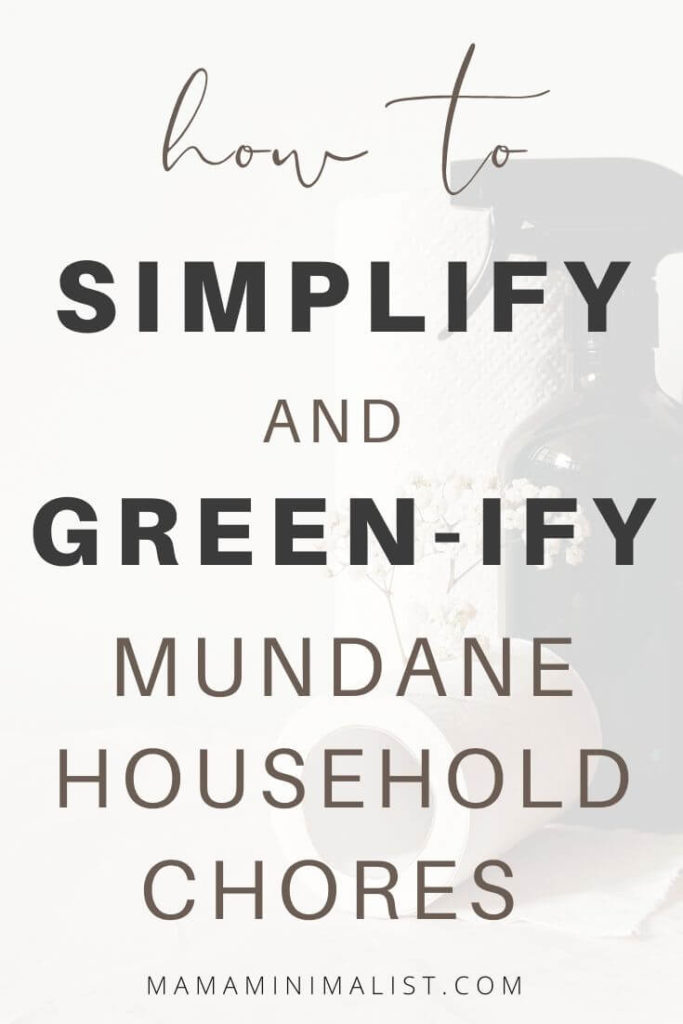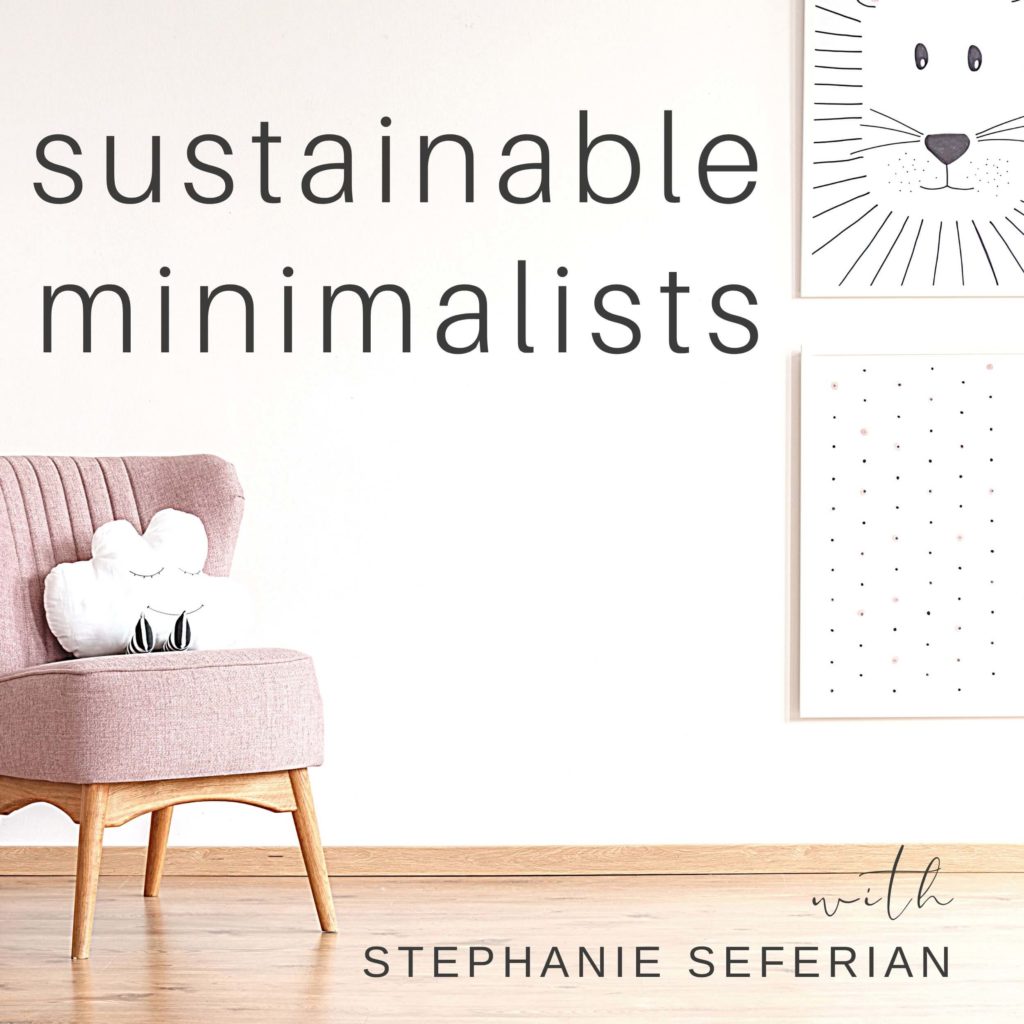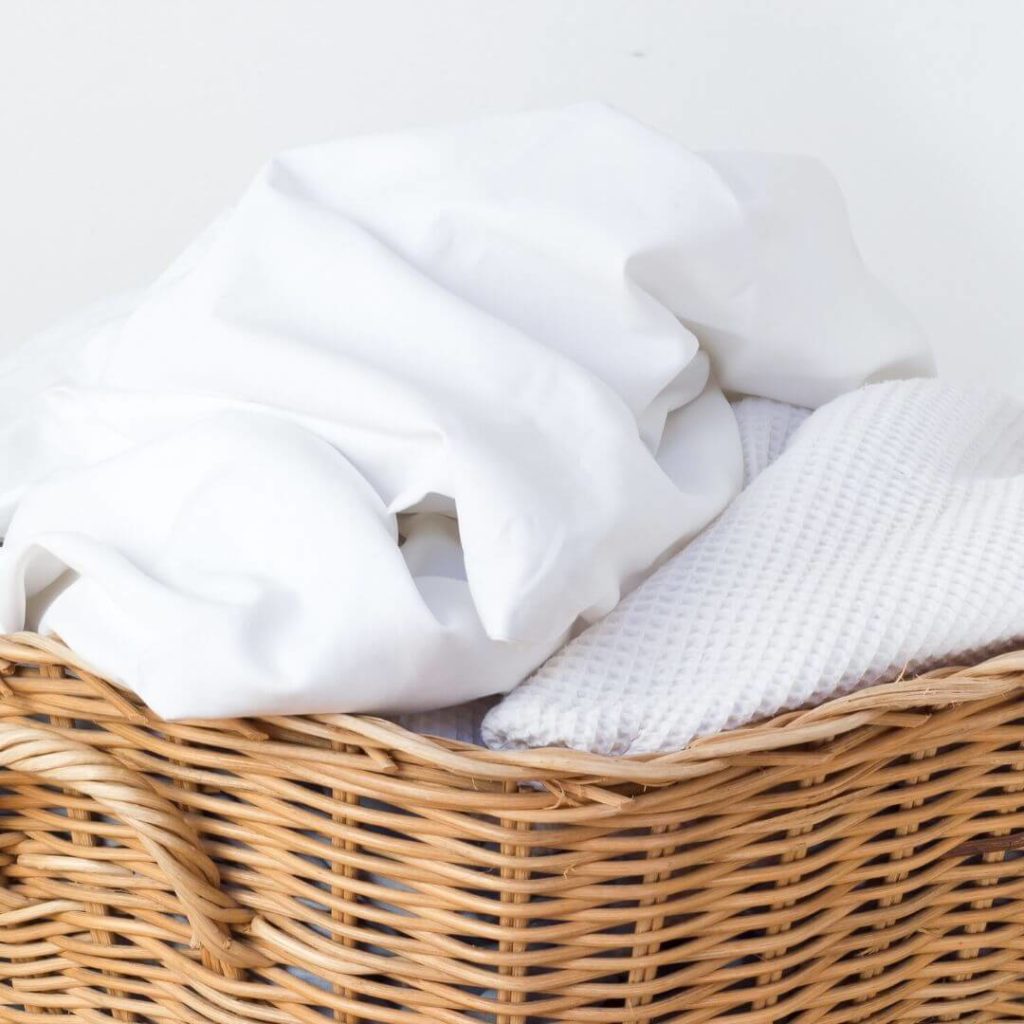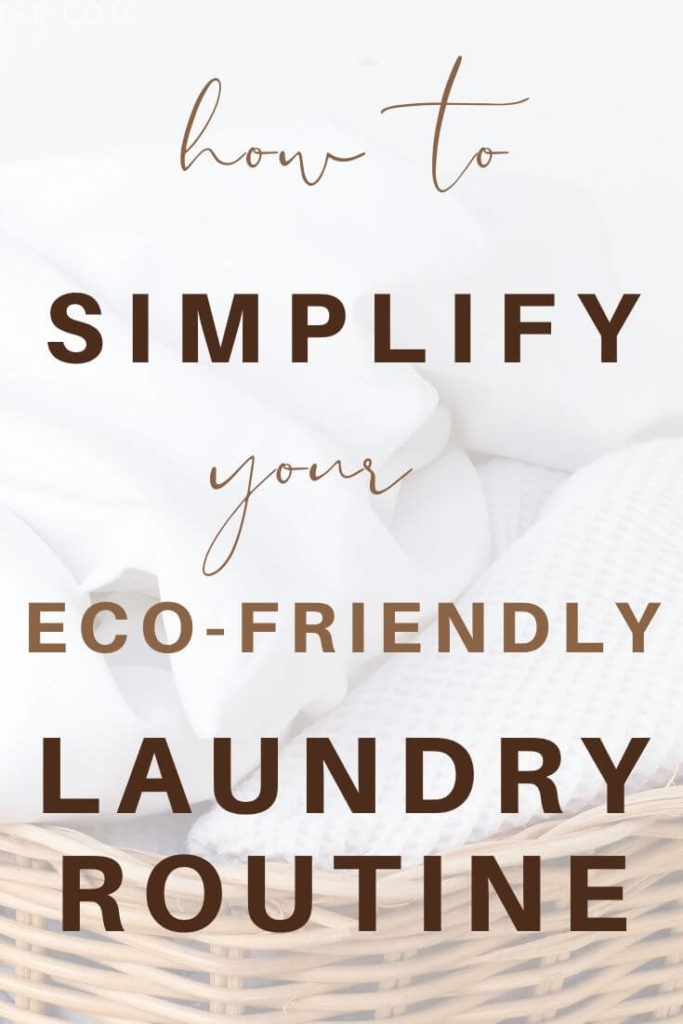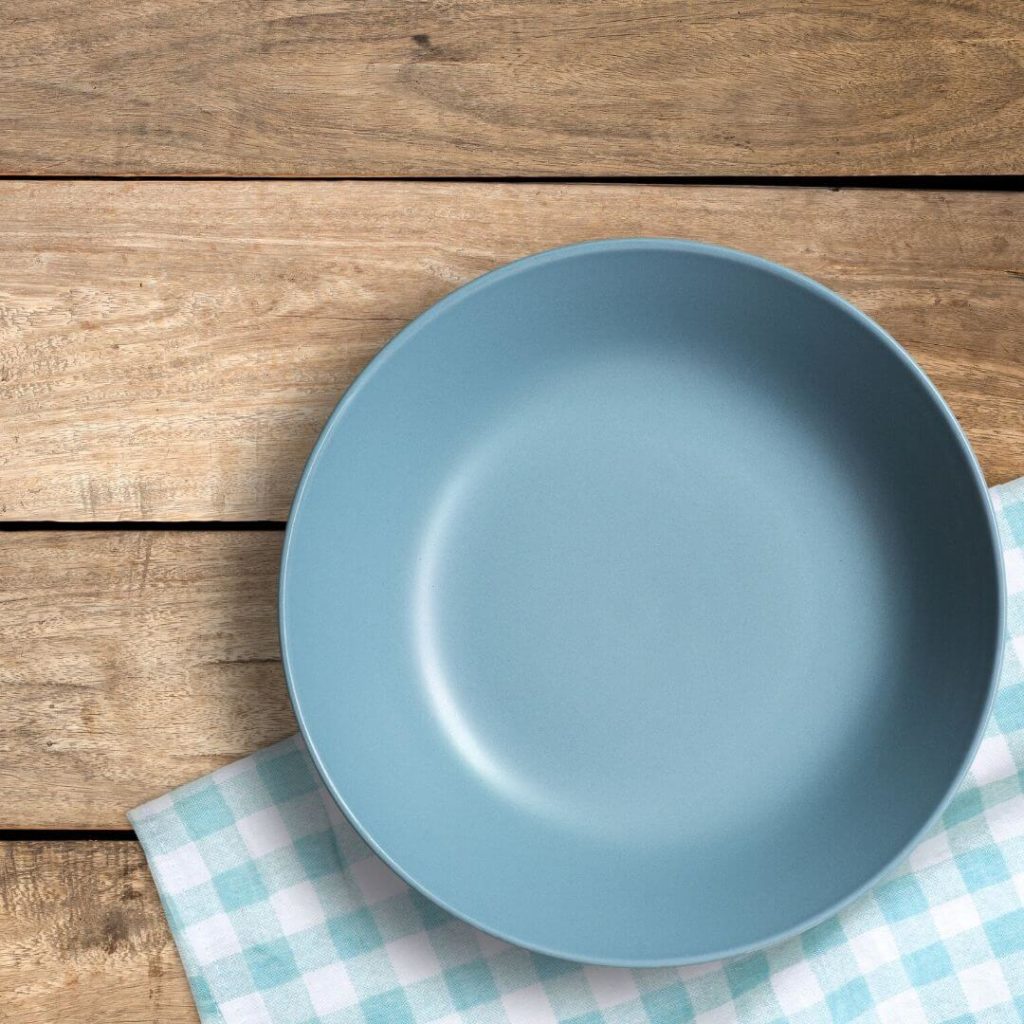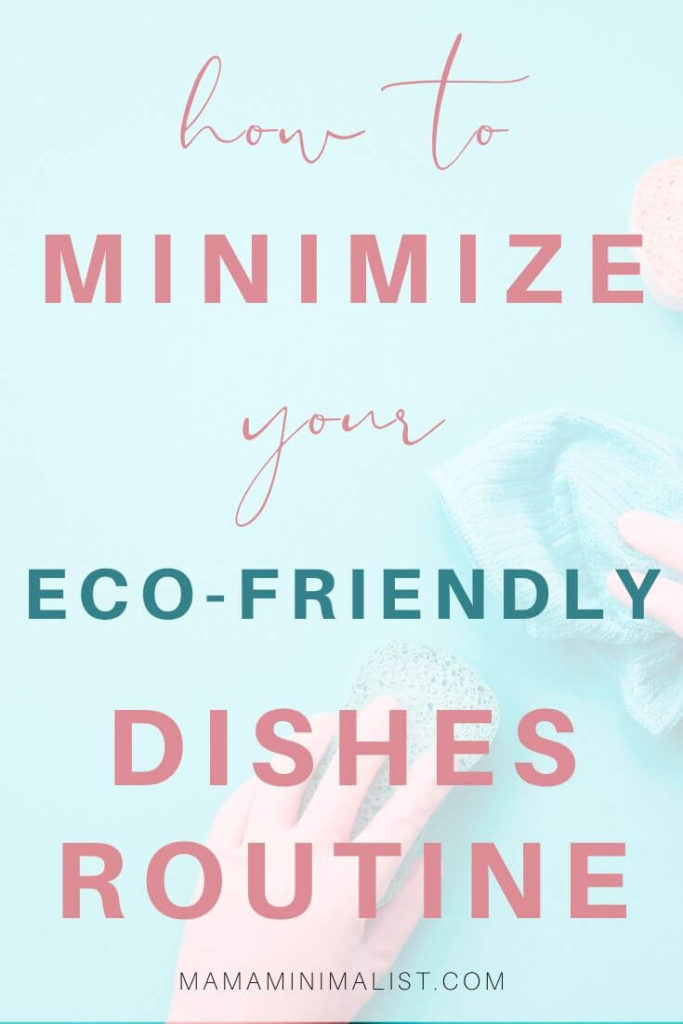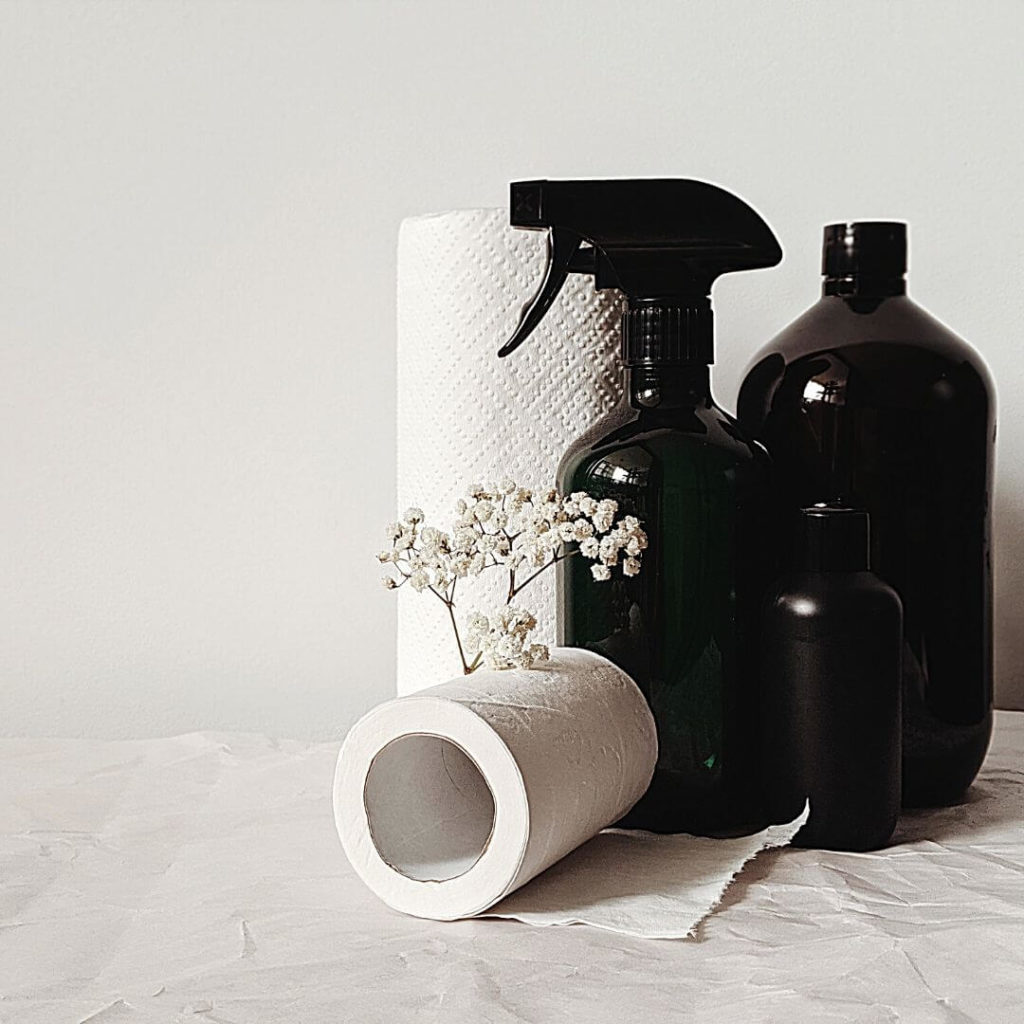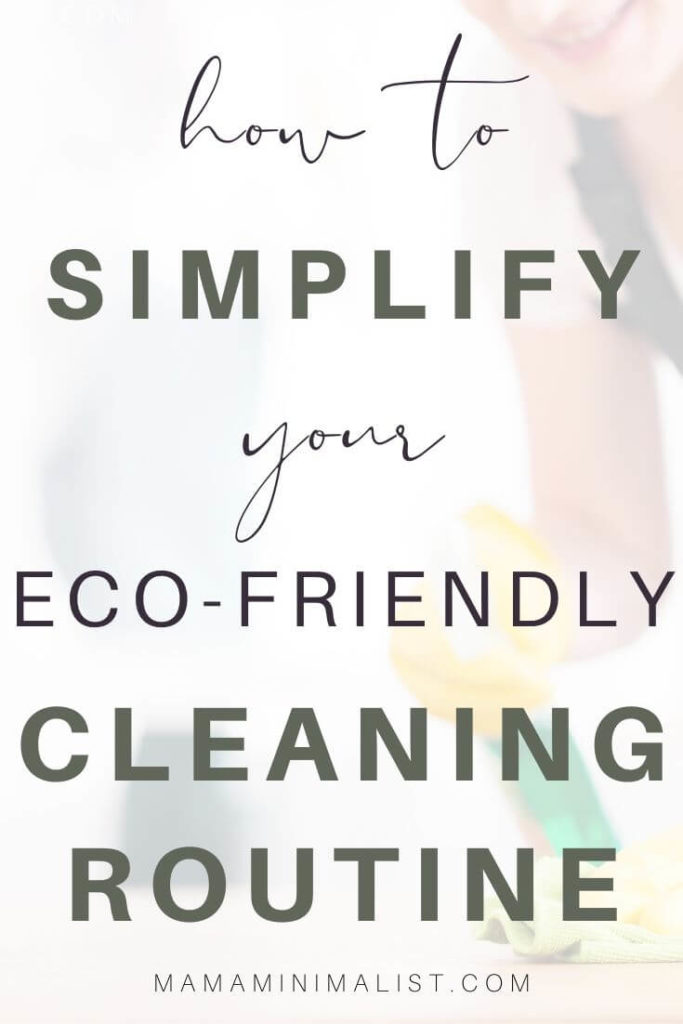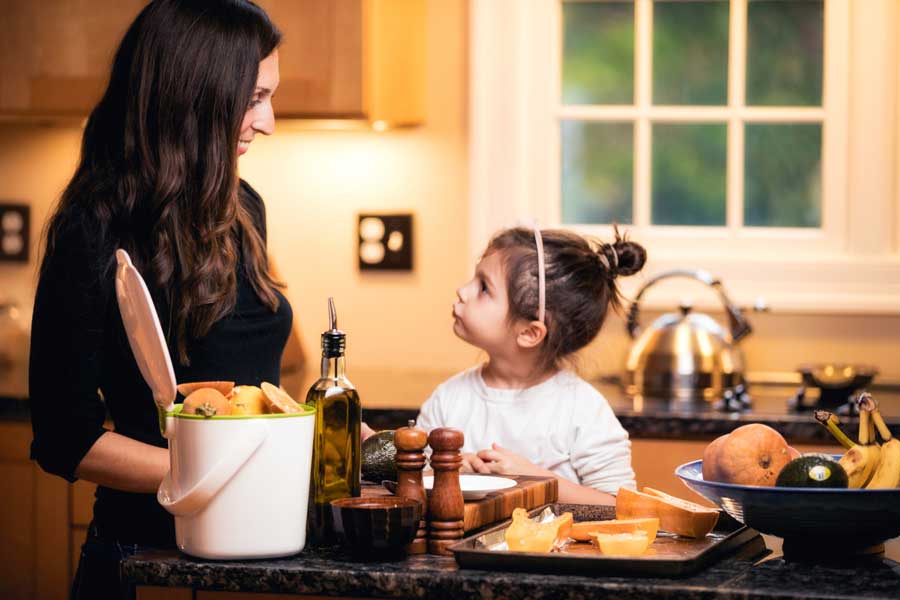How to Simplify (and Green-ify!) Household Chores
How to Simplify (And Green-ify!) Common Household Chores
Laundry. Dishes. General home cleaning. Mundane household chores got you down?
Sustainable minimalism is about doing less and living more. The good news? It’s entirely possible to apply the tenets of sustainable minimalism to housework by simplifying tasks, minimizing magnitude and -finally! – incorporating incremental eco-friendliness to our efforts.
Read on for tips and tricks that simplify (and green-ify!) 3 of the most persistent household chores.
You can find The Sustainable Minimalists podcast wherever you listen to podcasts.
Apple Podcasts | Google Podcasts | Spotify | Stitcher
Mundane Household Chore #1: The Laundry
How to simplify and minimize the laundry:
Delegate. Teach your children to turn everything right-side-out before filling the hamper. Instruct them to sort lights from darks, too.
Keep a stain spray or spot remover in your kitchen. Doing so ensures you will be armed to tackle stains head-on; instant spray application prevents stain-related scrubbing, too.
Eliminate unnecessary visual clutter by hanging up the ironing board and putting away the iron when not in use.
Fold clothes the second you take them off the line, then put them away. Doing so will prevent an unruly and wrinkled pile of clothes accumulating on your sofa.
Hang less, roll and store in drawers more. Whereas hanging is time-consuming, rolling is speedy.
Re-wear your clothing and pajamas, within reason. if you can get a few wears out of something before it’s actually soiled, go for it. Doing so will reduce both water waste and microplastic pollution, too.
Fewer clothes results in less laundry, so enact capsule wardrobes for both yourself as well as for your children.
How to make your laundry routine more eco-friendly:
Invest in a non-toxic laundry detergent. Soap nuts are a berry shell that grow on the Soap Berry tree in the Himalayas. Alternately, Dropps detergent pods come in eco-responsible packaging and boast no unnecessary dyes or fillers.
Avoid fabric softener (unnecessary) and dryer sheets (single-use).
Invest in a laundry washing ball to collect microfibers that shed off synthetic clothing.
Wash everything except sheets in cold water in a shorter cycle. Cold water and shorter cycles reduce water waste, garment fading, and excess microfiber shedding.
Consider washing one small load per day. Doing so ensures your drying rack is always available (which means you will use the dryer less!).
Mundane Household Chore #2: The Dishes
How to simplify and minimize the dishes:
Wash in the right order. Wash glasses and stemware first in clean water (this prevents greasy smears). Next, wash silverware, as silverware goes in your mouth and therefore must be fully cleaned. Third, wash plates and bowls; finally, scrub pots and pans.
Use cold water to clean starches and dairy products of dishes. Hot water will make such foods gum up.
Cook one-pot meals to reduce the number of pots and pans to be washed.
Save yourself from scrubbing and save water in the process by serving food in the same pan you prepared it. Use the pots and pans you already own or, if you are in the market for some new cookware, consider varieties that are both functional and beautiful. Even better? Score these items secondhand.
Have a dishwasher? Fill it with dirty dishes as you cook.
Get in the habit of cleaning any remaining bits of foods from the bottom of the dishwasher after each cycle. Maintain your garbage disposal, too, by making cleanser cubes that eliminate odors with lemon and vinegar.
How to make your dishes routine more eco-friendly:
Ditch the sponge; embrace a rag, instead, then wash it in the washing machine when soiled. Alternately, invest in a bamboo dish brush with interchangeable heads.
Use less soap. Squirt one tablespoon in a shallow bowl and add a cup of water. When you need more soap, dip your rag or brush into the bowl.
Make your own dish detergent. Add one part Castile soap to ten parts water to make liquid dish soap. To scour pots and pans, mix sea salt with lemon juice into a paste, then rub away.
Reduce water waste by filling a basin with soapy water instead of keeping the water running while washing.
If you have a dishwasher:
When filled to capacity, newer dishwashers save energy and reduce water consumption. While washing dishes by hand uses approximately 27 gallons of water per load, an Energy Star-Certified dishwasher requires as little as 3 gallons per load. Dishwashers save energy, too, because most newer models have heaters inside that warm water more efficiently than your home’s water heater.
Pre-rinse mindfully by placing dishes that are not woefully soiled straight into the dishwasher. Scrape, don’t rinse!
Invest a phosphate-free dishwasher detergent that will not pollute waterways. I prefer Dropps dishwasher pods.
Mundane Chore #3: Household Cleaning
How to simplify and minimize house cleaning:
Dust first, then vacuum. Start high (dust light fixtures and chandeliers), then work lower by wiping countertops. Vacuum last.
Tackle the worst thing in the room first, then work left to right. Doing so ensures you won’t miss anything.
Clean when it’s sunny. Open the drapes and shades; turn on all the lights, too, so you can see the mess and clean more thoroughly.
After you apply cleaning products, give them time to work. Most cleansers do not instantaneously disinfect. Leave them on for a few minutes and give them time to kill germs and break down crud.
Take everything off of a surface and put it all back at once. This is more time-efficient than picking up each item, cleaning underneath it, and putting it down.
Vacuum with an extension cord.
Keep a razor in a drawer beside your stove so that you can easily scrape gunk off the stovetop before it hardens.
Minimize your cleaning products, as using different products in different rooms is inefficient. Professional house cleaners tend to use only three products in an entire house. Which ones are the most versatile?
Keep your shower shinier longer by stocking the bath with vegetable oil-based soaps. These soaps rinse cleaner than traditional soaps which can leave white, gummy soap scum crusted on your shower walls.
How to make your household cleaning routine more eco-friendly:
Make your cleaning products at home. Mix equal parts vinegar and water in a spray bottle to make an all-purpose cleanser. If your countertop is made of marble, granite or stone, mix water with rubbing alcohol or vodka instead of vinegar, as vinegar is too acidic for some countertops.
In place of Windex, mix one part white vinegar with four parts water and a splash of lemon juice. Rather than wiping with paper towels, use old newspaper, instead.
Clean with microfiber cloths instead of paper towels (single-use) or sponges (unsanitary). Because microfiber cloths are machine washable and quick-drying, they are far less likely to retain germs.
